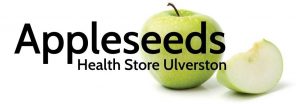The new school year has started with new challenges and different experiences facing children and young people. Supporting them both physically and emotionally when they are still growing and developing will help them to cope with the pressures and stresses they face.
A great place to start is with good healthy nutrition, hydration and exercise which will support them to better health throughout the school year. Additionally setting healthy habits early increases the chance a child will carrying these habits into adulthood, therefore supporting the generation of tomorrow to better health.
Hydration
- Have plenty of fluid available
- Water is best; does not contain sweeteners, simple sugars or additional calorie
- Aim for 70-80% fluid from drinks
– 1.1-1.3l/day for 4-8yrs
– 1.3-1.5l/day for 9-13yrs girls
– 1.5-1.7l/day for 9-13yrs boys - Be inventive to make water exciting; – Get a fun water bottle
– Add cucumber, lemon or lime slices
– Freeze berries and use as ice cubes
– Offer herbal and fruit teas
Start with the Foundations; Wholesome Nutrition and Hydration
Getting the right balance of macronutrients, which include carbohydrates, fats and proteins will help to maintain a well-functioning immune system, healthy growth, balanced energy levels, good concentration and positive mental health.
Carbohydrates provide the best source of energy for children to participate in physical activities and fuel the brain.
Getting the right source of carbohydrate is important for preventing long term health issues and maintaining a healthy weight. Complex carbohydrates should provide the main source and simple quick release sugars only consumed very occasionally.
| Complex carbohydrates | Carbohydrates from simple sugars | |
| Sources | Wholegrain varieties of pasta, bread and rice. Potatoes with skins on, sweet potatoes, oats, spelt, buckwheat, millet and quinoa. | Sweets, biscuits, cakes, fizzy drinks, pre-made sauces, many breakfast cereals, chocolate bars and flavoured yoghurts |
| Differences | Higher in fibre, support regular bowel movements, keep the intestines healthy. Aid blood sugar balance as energy is released slowly into the blood stream and keep you fuller for longer. | Increase risk of developing type 2 diabetes, obesity, and tooth decay.
Raise the chance of hyperactivity, irritability and aggression. Some studies link high sugar and additive fuelled food with conditions such as autism and ADHD. |
Protein is required for growth and repair and when broken down into amino acids they are used to make neurotransmitters and some hormones. Animal sources of protein provide a comparable pattern of amino acids to that of humans whereas few plant sources do. Children cannot meet their requirements of 15 of the 20 amino acids, this makes them essential and need to be consumed through diet.
Focus on grass-fed lean meats, game, fish and eggs and avoid processed, additive filled protein sources; such as ham, bacon, chicken nuggets and burgers. This will give your child nutritious protein that meets their requirements and limits their exposure to additives and trans fats.
Children following a vegetarian diet need to be eating plenty of eggs, dairy products, hemp seeds and quinoa while combining key plant foods such as rice and beans. These vegetarian foods have a complete amino acid profile so provide the essential amino-acids.
Fats and Essential Fatty Acids
Fat may have a bad reputation but it is the type of fat consumed that is important. Trans fat and too much saturated fat are the ones to avoid; these are found in fried foods, cakes, pastries, pies and crisps. Polyunsaturated and monounsaturated fats are of benefit to health, found in nuts, seeds, olive oil, flax, hemp and oily fish.
Omega 3 polyunsaturated fatty acids; particularly docosahexaenoic acid (DHA) and eicosapentaenoic acid (EPA) found in oily fish and algae oils are essential throughout life. However as children grow and develop they are needed for:
- Brain growth and development, over 60% of the brain is made up of fat and 10-15% from DHA.
- DHA is in high levels in the area of the brain responsible for problem-solving, planning and concentration. Indirectly helping children learn and keep them focused.
- Support membrane fluidity, particularly in the brain. This allows messages to pass between cells more efficiently, aiding learning and memory.
- Improve blood flow to and around the brain, therefore decreasing the risk of depression and mental health issues; a rising illness in young people.
- Studies have shown omega 3 fatty acids to reduce incidences or improve symptoms in depression, asthma, ADHD and autism.
- Component of the rods and cones in the retina; key for eye development and health.
Vitamin and Minerals
Fruit and vegetables are the one of the highest sources of most vitamins and minerals. They are needed for bone, muscle and red blood cell development and growth, immune health, energy metabolism, healthy skin, hair and eyes, as well as healthy nervous and circulatory systems.
Inventive ways to include fruit and vegetables in your child’s diet. Try
- Blended frozen banana
- Fruit smoothies
- Soups
- Pureed vegetables added to stews, bolognaise, tomato based sauces and curries
- Vegetable sticks or fruit pieces with cottage cheese, cream cheese, nut butters or hummus
- Eat together away from the television and stimulants
- Get children involved in growing their own
- Go fruit picking
- Get them to help in preparation
- Regularly introduce and sample different vegetables and fruit.
Make eating a varied fruit and vegetable diet fun and exciting yet part of their normal routine as a way to healthy eating habits.
Providing a diet rich in complex carbohydrates, plenty of vegetables and small amounts of fruit, the right types of protein and fat, while keeping children well hydrated will set good, healthy eating patterns. It will support your child to better overall health and less chance of developing obesity, mental health issues, tooth decay and type 2 diabetes.

